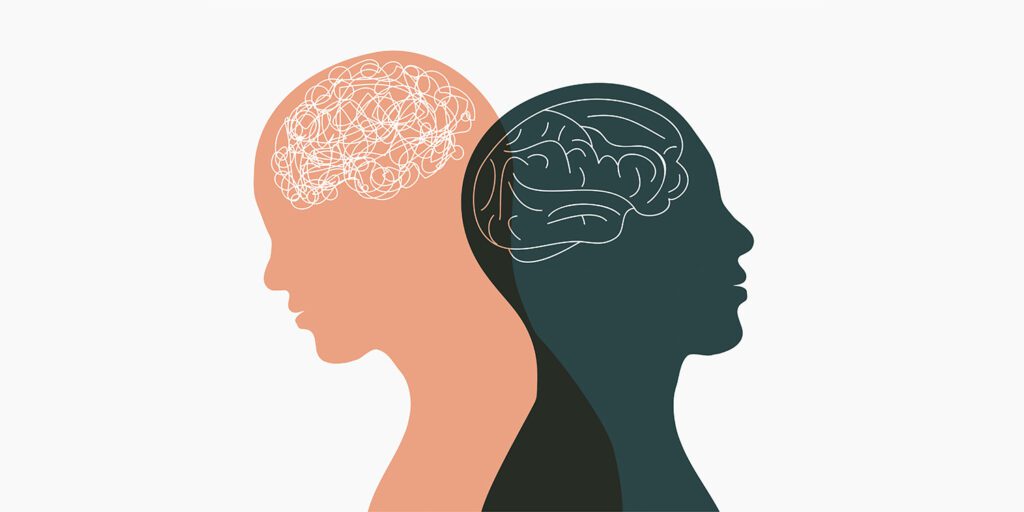

Stress is a completely natural human response that we, for the most part, completely ignore, overlook, and misunderstand on a day-to-day basis.
It can strike at any place, any time, and anywhere without warning from a variety of sources, like: work, family, home, relationship, health, or financial worries. Some stress is bad, and in fact, some stress is actually good.
Stress can come from many sources, including work, relationships, finances, and health concerns. While some stress is normal and even healthy, chronic stress can lead to a range of health problems. It can prevent you from sleeping, living, and enjoying life if you have too much, and prevent you from growing if you don’t have enough.
Feeling ‘stressed out’ comes with a multitude of symptoms, but looks a little different for everyone.
Stress functions throughout a constellation of physiological systems in the body by evoking rapid shifts and changes in neuro behavioural processes. Stress is the body’s natural response to triggers, called the ‘fight-or-flight response’, and functions as an evolutionary warning sign that we are in ‘danger’.
When you experience stress it triggers your fight-or-flight response, flooding the body with stress hormones like cortisol and adrenaline to help you manage and adapt to the stress. Although it’s a normal response, stress can become a problem when those responses stay triggered for long periods of time, or you remain chronically stressed out. Stress creates an allostatic load in the body. This is due to disrupted allostasis which is the word given to the active process of maintaining homeostasis. We are beginning to understand that multiple diseases in the human body are due to the creation of this allostatic load.
Both physical stress: high impact workouts, manual labour, physical danger and mental stress: financial, family, health worries, can both have distinct impacts on your day-to-day and long term health, making stress management critical to your health.
When you’re under stress, your body produces more cortisol more regularly, which keeps you awake. Cortisol can disrupt your sleep by making it hard to fall asleep, stay asleep, or sleep at all. Without sleep your body doesn’t heal, repair, and regenerate and can severely impact your mood. Lack of sleep ultimately leads to more stress, creating a vicious cycle of sleep deprivation.
Stress can also impact your nervous system, which is responsible for controlling your body’s response to stress in the first place. With the triggering of your body’s fight or flight response and the release of stress hormones, your nervous system responds accordingly with a heightened, uncontrollable sense of awareness.
Although this response can be life saving in the right circumstances, and in short bursts, chronic stress can lead to a constant state of hyperarousal in the nervous system, which can manifest in physical symptoms like muscle tension, headaches, and digestive problems.
The Endocannabinoid System plays a key role in regulating a range of bodily functions, including mood, appetite, and pain. When you’re under stress, your body’s endocannabinoid system can become dysregulated, leading to a range of symptoms and health problems.

The body’s own Endocannabinoid System is known as the body’s master regulator and helps to control things like stress, anxiety, mood, sleep, and healthy nervous system function. This system works by producing its own natural compounds, called endocannabinoids, to activate the ECS when needed. The precise balance of these compounds keeps the body in a state of homeostasis, or balance.
One of the key ways that stress impacts the Endocannabinoid System (ECS) is by reducing the production of endocannabinoids, causing dysregulation of the body and contributing to feelings of anxiety, depression, and chronic stress. Chronic stress can lead to the downregulation (a decrease in the number of receptors on the surface of target cells) of cannabinoid receptors, which can make it harder for your body to respond to endocannabinoids and other compounds that activate the system.
The human body naturally produces endocannabinoids, the most abundant being anandamide and 2-AG. A growing body of work indicates the ECS is an internal regulator of this stress response, with some studies showing that stress evokes bidirectional changes in critical endocannabinoids, anandamide (AEA) and 2AG. Where stress reduces anandamide* levels it equally increases 2AG**. A reduction in anandamide (the bliss molecule), appears to contribute to the stress response, activation of the Hypothalamus-pituitary-adrenal axis (increasing anxiety), and rising 2AG levels including changes in pain perception, memory and synaptic plasticity.
*Anandamide (AEA) – an endocannabinoid, often referred to as the bliss molecule
**2-AG – an endocannabinoid, a signalling lipid in the central nervous system, and key regulator of neurotransmitter release
Regulation and healthy function of the Endocannabinoid System (ECS) buffers against the effects of stress to help maintain an effective state of physical and emotional homeostasis.

Creating a simple, consistent stress management routine can be incredibly impactful and necessary for long term health and wellness. Current research is highlighting how all of the above improve our wellbeing through the support and stimulation of the endocannabinoid system.
Here are Ananda Clinics top recommendations for a simple, easy to implement stress-management routine:
1. Sleep: Making sleep a priority can help to reduce the impact of stress on your body. Try to establish a regular sleep schedule and create a calming bedtime routine to help you relax and unwind: put phones away, cut blue light exposure, dim the lights.
2. Exercise: Regular exercise can help to reduce stress and boost your mood. Even a short walk or gentle yoga practice can be helpful. Stress, walk, and use gentle practices for movement at least 3x per week.
3. Mindfulness: Mindfulness practices (link to blog: Mindfulness Practices for your health) like meditation, deep breathing, and yoga can help to reduce stress and calm your nervous system. Implement 60 seconds of box breathing in the morning and at night to reset your nervous system.
4. Community: Connecting with a community can help to reduce feelings of isolation and stress. Try to make time for meaningful social connections, whether it’s spending time with family and friends or finding a community from activities you enjoy.
5. Regulate your ECS: The endocannabinoid system can quickly become dysregulated through exposure to stress. Through a healthy diet rich in omega 3 and 6 polyunsaturated fatty acids, weekly exercises and meditation, and a healthy, connected social network help to regulate endocannabinoid levels and ECS function. Regular mindfulness and meditative activities have also been shown to modulate endocannabinoid levels, with anandamide being the primary molecule produced to exert positive, mood lifting effects through.
Find out more about how stress could be impacting your health, and how regulation of your Endocannabinoid System could help! Book an appointment with a GP.
DISCLAIMER: The Ananda Clinics blog is here to provide education and information, without implying medical advice, or recommendation for the use of cannabis as medicine or adult use purposes.
Medical cannabis remains strictly regulated by the Australian TGA as it is not a registered therapeutic agent due to the lack of research and evidence in support of its efficacy or potential side effects.
If you think medical cannabis may be right for you, book an appointment with one of our doctors to find out more.
